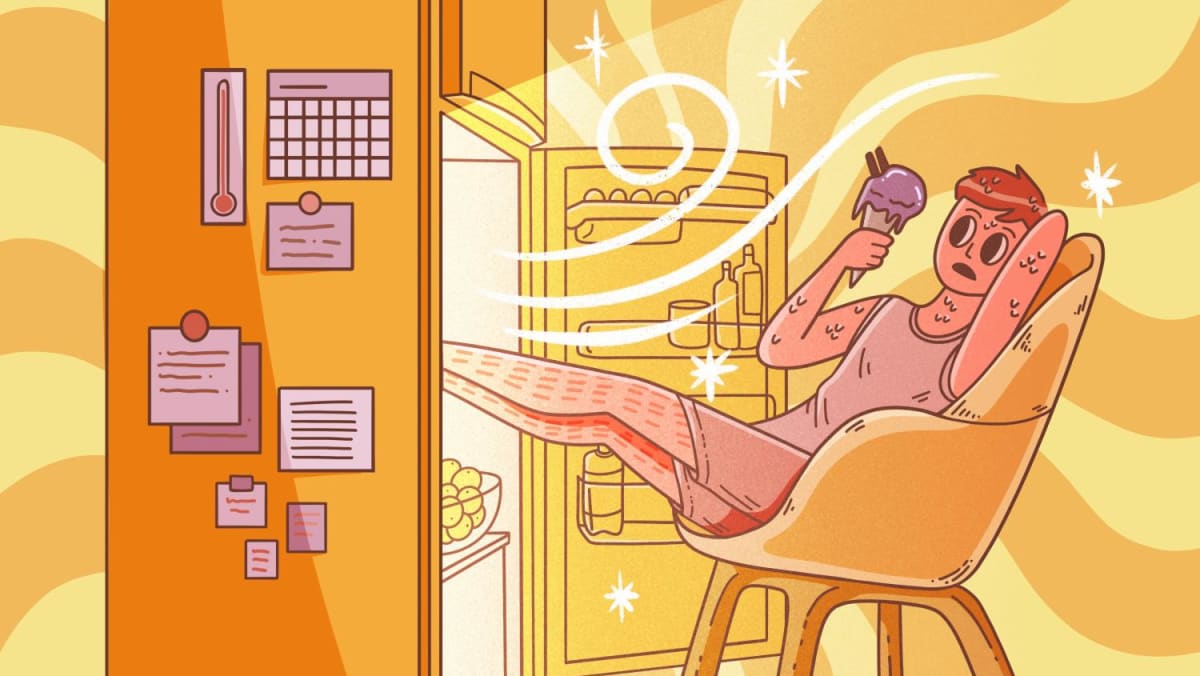SINGAPORE— The stifling heat in the past couple of months was not just over this island, but around the world, as data showed that June to August has been the hottest three-month period ever recorded on planet Earth.
Prof Horton said that heat is a rapidly growing health risk.
“Globally, hundreds of thousands of people die from preventable heat-related causes each year. The impact on people, economies, and the natural and built environment is serious.”
C3S reported that August saw wetter-than-average conditions over a large part of central Europe and Scandinavia, often with heavy rainfall leading to flooding.
Over the Iberian Peninsula, where Spain and Portugal are, southern France, Iceland and much of eastern Europe, including the southern Balkans, C3S reported that it was drier than average, with wildfires occurring in France, Greece, Italy and Portugal.
Apart from heatwaves, rapidly climbing surface temperatures can lead to more frequent and severe weather events.
Dr Emma Ramsay, a post-doctoral research fellow at NTU’s Asian School of the Environment, said: “Rising temperatures cause more water to evaporate, driving more intense rainfall and potentially supercharging hurricanes.
“When these extreme rainfall events hit land, they can cause severe flooding like we saw in Hong Kong.
“With climate change, these events that we once thought of as rare extremes are happening more often and become the ‘new normal’.”
Prof Horton said that climate change is making typhoons and hurricanes wetter, windier and altogether more intense.
There is also evidence that it is causing typhoons and hurricanes to travel more slowly, meaning they can produce more rainfall in one place.
The effects of rising global temperatures are widely understood and easily discernible.
However, the experts warned of the more severe consequences of rising ocean temperatures.
With the ocean absorbing 90 per cent of climate warming caused by greenhouse gas emissions, much of the ocean’s heat is contained near the surface, which can cause more powerful typhoons and hurricanes.
Prof Horton explained: “This additional heat can fuel a typhoon and hurricane’s intensity and power stronger winds because a warmer atmosphere can also hold more moisture and water vapour; this builds up until clouds break, sending down heavy rain.”
Scientists at the US National Oceanic and Atmospheric Administration (NOAA) predicted that at 2°C of warming, typhoon and hurricane wind speeds could increase by up to 10 per cent.
NOAA also projected that the proportion of typhoons and hurricanes that reach the most intense levels — Category 4 or 5 — could rise by about 10 per cent this century.
Prof Horton said: “The typical ‘season’ for typhoons and hurricanes is shifting, as climate warming creates conditions conducive to storms in more months of the year.”
While most people are aware of the dangers of heat risk, Dr Ramsay said that the increasing humidity because of the rising temperatures is cause for more concern, especially for Singapore.
“Most of us are now aware of rising temperatures. What many people don’t know is that humidity is also rising.
“As the oceans and land surfaces warm, more water is evaporating, and warmer air can hold more moisture.
“More moisture in the air means more rainfall, which can make hurricanes and storms more dangerous,” she explained.
HOW WILL RISING TEMPERATURES AFFECT SINGAPORE?
With increases in average temperatures and more frequent extremes, day-to-day conditions are getting warmer, and heatwaves would become more severe and frequent, Dr Ramsay said.
“Rising humidity is a major contributor to heat stress. When it is humid, our perspiration cannot evaporate efficiently, impairing our body’s ability to cool down. At high humidity, even moderate temperatures of around 31°C to 35°C can be lethal,” she added.
“Because it is already so hot and humid in Singapore, it doesn’t take much to push us into unsafe conditions.”
As a highly urbanised city, the island state is set up to feel the worst heat, as cities tend to be hotter than surrounding non-urban areas. This is known as the urban heat island effect, Dr Ramsay said.
“Buildings and roads absorb and retain heat, and there is less vegetation to provide cooling from shade and evapotranspiration.”
Evapotranspiration is the loss of water as it evaporates into the atmosphere from the soil surface and from the soil via plant leaves and other water bodies on land.
“People living in cities, like Singapore, have to contend with a double-whammy of heat — global warming and local warming from the urban heat island,” Dr Ramsay added.
Such extreme temperatures pose a risk to groups such as seniors and very young, who are particularly vulnerable to heat stress.
Furthermore, outdoor workers such as manual labourers, construction workers and delivery drivers are also at risk because they have high exposure and few opportunities to take breaks and get respite from the heat.
“Some people might not realise that humid heat can be lethal, even for fit, healthy people,” Dr Ramsay cautioned.
“Rising temperatures and rising humidity are an existential threat, especially in places like Singapore where it is already hot and humid.
“Climate change is already pushing conditions into the lethal zone, and it is only going to get worse.”


